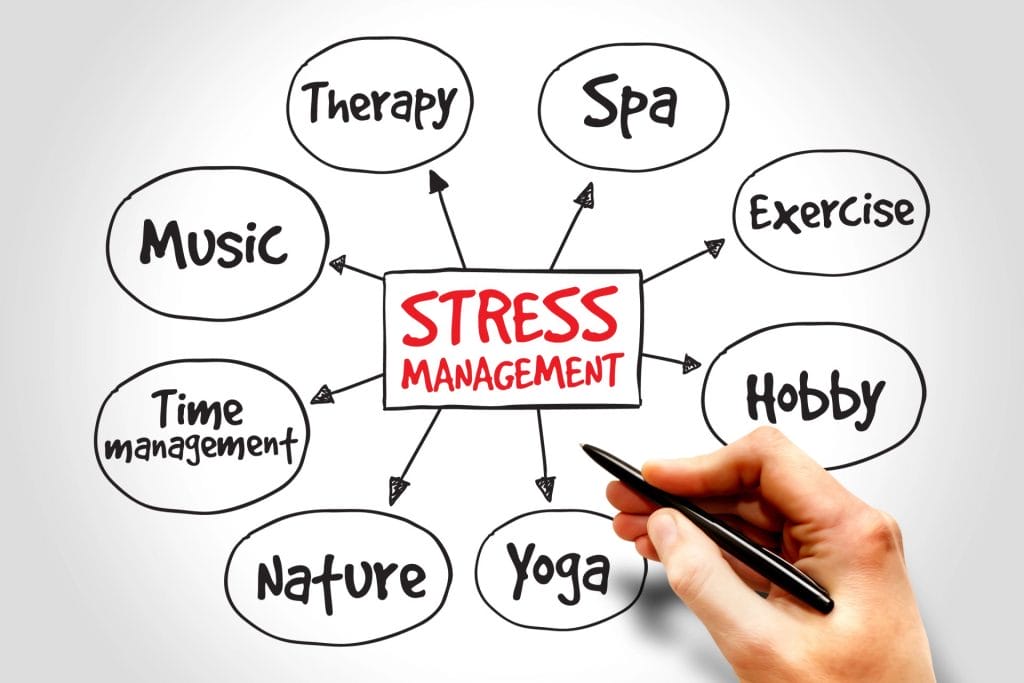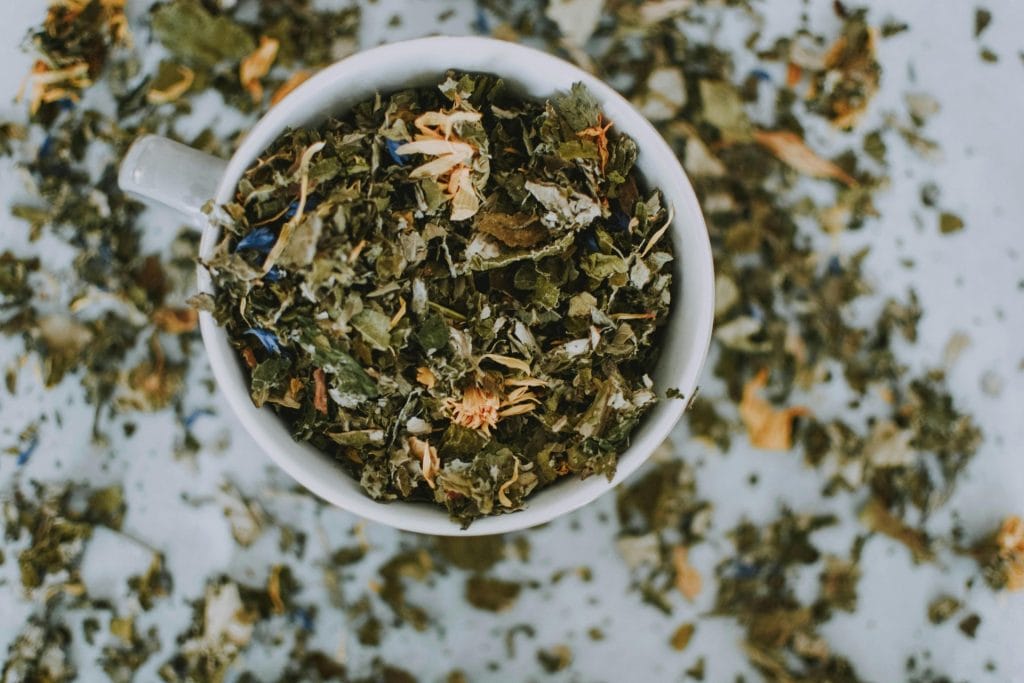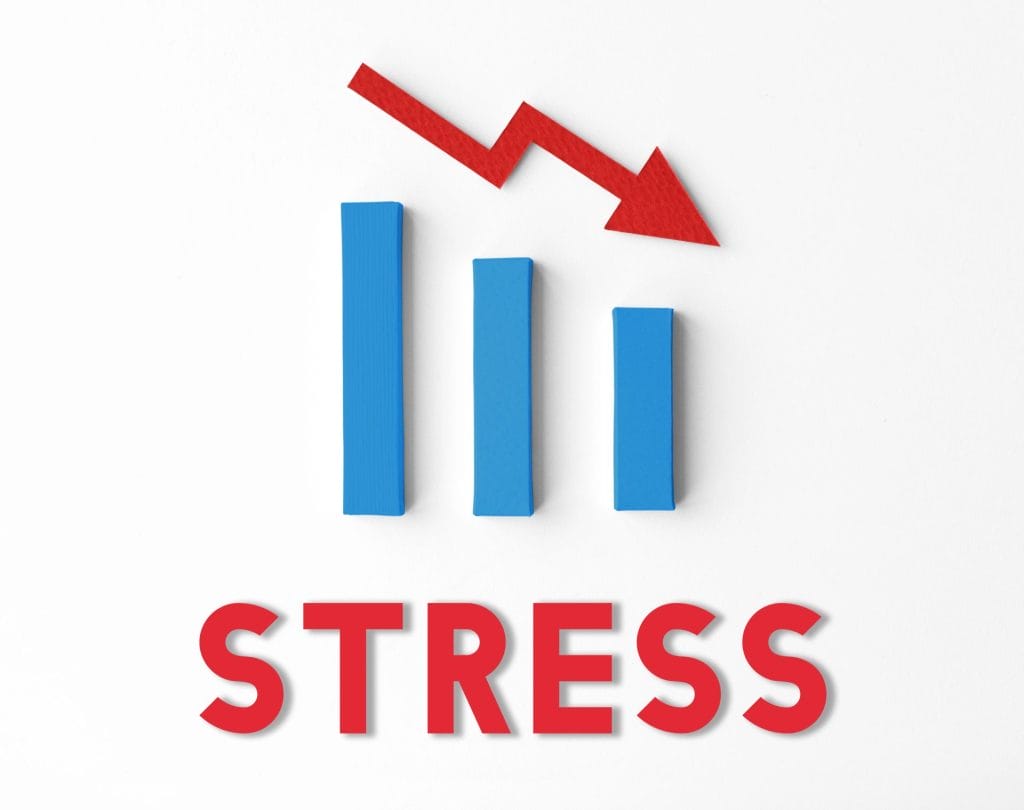Introduction
You wake up with your heart racing, your mind already spinning through today’s endless to-do list. Your shoulders feel like they’re carrying the weight of the world, and that familiar knot in your stomach tells you another stressful day lies ahead. If this sounds like your daily reality, you’re not alone. You’re living in a world where stress has become as common as your morning coffee, yet finding effective, natural solutions feels impossible.
The truth is, you don’t have to accept chronic stress as your new normal. Your body and mind are crying out for relief, and natural stress remedies can be your pathway to reclaiming peace, balance, and joy in your life.
The Problem: You’re Trapped in a Cycle of Chronic Stress
Your Daily Stress Reality
Every morning, you face the same overwhelming scenario. Your alarm jolts you awake, and immediately your mind starts racing. Work deadlines loom over you like dark clouds. Family responsibilities pull you in every direction. Financial pressures weigh heavily on your shoulders. Social obligations drain your already depleted energy reserves.
You find yourself constantly checking your phone, scrolling through news that only adds to your anxiety. Your sleep suffers because your mind won’t quiet down at night. You reach for quick fixes – another cup of coffee, processed snacks, or mindless entertainment – but these only provide temporary relief while making the underlying problem worse.
The Hidden Toll Stress Takes on Your Life
What you might not realize is how deeply chronic stress is affecting every aspect of your existence. Your immune system weakens, leaving you vulnerable to frequent colds and infections [1]. Your digestive system rebels with stomach aches, bloating, and irregular bowel movements. Your skin breaks out or develops mysterious rashes. Your hair might even start thinning or falling out.
But the impact goes beyond physical symptoms. Your relationships suffer because you’re irritable and impatient with loved ones. Your work performance declines because you can’t concentrate or make clear decisions. Your creativity and passion for life slowly drain away, leaving you feeling like you’re just going through the motions.
You’re Not Weak – You’re Human
Perhaps the most frustrating part is feeling like you should be able to handle everything better. You tell yourself to “just relax” or “stop worrying so much,” but these internal commands only create more stress. You compare yourself to others who seem to have it all together, not realizing they’re likely struggling with similar challenges behind closed doors.
The reality is that your stress response system evolved for short-term physical threats, not the constant psychological pressures of modern life. Your body can’t distinguish between running from a predator and worrying about a work presentation – it responds with the same flood of stress hormones that were meant to be temporary, not chronic [2].
Agitation: The Mounting Crisis You Can’t Ignore
Your Stress Is Getting Worse, Not Better
While you’ve been hoping your stress levels would naturally decrease, the opposite is happening. Each day without proper stress management tools compounds the problem. Your nervous system becomes increasingly sensitive, triggering stress responses to smaller and smaller situations. What used to be manageable challenges now feel overwhelming.
The modern world isn’t slowing down to give you a break. Technology keeps you connected 24/7, making it impossible to truly disconnect. Social media constantly bombards you with others’ highlight reels, fueling comparison and inadequacy. News cycles feed you a steady diet of anxiety-inducing information. Economic uncertainty and global events create a background hum of worry that never fully goes away.
The Dangerous Long-Term Consequences
Your body isn’t designed to handle chronic stress indefinitely. Research shows that prolonged stress exposure significantly increases your risk of serious health conditions including heart disease, diabetes, depression, and autoimmune disorders [3]. Your cortisol levels remain elevated, disrupting your body’s natural healing and regeneration processes.
Your brain structure actually changes under chronic stress. The hippocampus, responsible for memory and learning, shrinks while the amygdala, your brain’s alarm system, becomes hyperactive [4]. This means you become less capable of rational thinking and more reactive to perceived threats, creating a vicious cycle that becomes harder to break with each passing day.
The Ripple Effect on Everything You Value
Your unmanaged stress doesn’t exist in a vacuum – it’s destroying the very things you work so hard to protect and nurture. Your relationships deteriorate as you become less patient, less present, and less emotionally available. Your children pick up on your stress, potentially passing these patterns to the next generation.
Your career suffers as stress impairs your decision-making abilities, creativity, and leadership skills. You might find yourself making mistakes, missing opportunities, or burning bridges with colleagues. The very success you’re stressing about achieving becomes more elusive as stress undermines your performance.
Time Is Running Out
Every day you delay addressing your stress properly, the problem becomes more entrenched. Your body’s stress response systems become more dysregulated. Your mental patterns become more ingrained. Your relationships experience more damage. Your health deteriorates further.
The conventional “solutions” you’ve tried – quick fixes, temporary distractions, or simply pushing through – aren’t working. In fact, they might be making things worse by teaching your nervous system that stress is normal and acceptable. You need real, lasting solutions that address the root causes of your stress, not just the symptoms.
Natural Approaches to Relieve Stress and Anxiety
Managing anxiety and stress involves exploring natural remedies and effective ways to cope with stress reactivity and symptoms of anxiety. Herbal remedies, essential oils, and herbal supplements are among the popular remedies for stress relief that may help reduce levels of cortisol—the body’s stress hormone. Deep breathing, spending time in nature, and practicing stress management strategies may help reduce symptoms of stress and anxiety. A systematic review and meta-analysis of treatment options shows that natural remedies for anxiety, including herbs for stress and omega-3 fatty acids, can help with anxiety and ease stress. These stress relievers often offer a calming effect, helping you feel more in control of daily stress and less overwhelmed by chronic stress or anxiety disorders.
Evidence-Based Stress Reduction and Mental Health Support
Cognitive behavioral therapy remains a leading treatment for anxiety, supported by mental health professionals and integrative health approaches. B vitamins and certain foods can help support mental and physical wellness and may help relieve anxiety symptoms and improve your mood. A randomized controlled trial suggests that natural stress relief techniques can reduce anxiety symptoms and help lower perceived stress levels. While stress and depression can increase your stress levels, remedies that help relieve and reduce symptoms of anxiety are easier to manage with consistent habits. Health tips and natural remedies, including those that tame stress and improve the stress response, offer practical ways to reduce the impact of stress and maintain balance. These methods enhance your ability to reduce the levels of the stress hormone and deal with stress in a healthier, more sustainable way.
Glam Dust
Radiant Skin – Luscious Hair – Pristine Nails
Vitamin Shots
The ultimate brain and body supplements
Vitamin Sprinkles
The ultimate brain and body supplements
Resolution: Your Path to Natural Stress Relief and Freedom Options
Understanding Natural Stress Relief: Your Body’s Built-In Healing System
The good news is that your body possesses remarkable natural healing and stress-recovery mechanisms. When given the right tools and environment, your nervous system can restore balance, your immune system can strengthen, and your mental clarity can return. Natural stress remedies work with your body’s innate wisdom rather than against it.
Unlike pharmaceutical interventions that often mask symptoms while creating dependency, natural stress relief options help your body remember how to regulate itself. These approaches address multiple aspects of stress simultaneously – physical tension, mental overwhelm, emotional reactivity, and spiritual disconnection.
Evidence-Based Natural Stress Remedies That Transform Lives
1. Adaptogenic Herbs: Nature’s Stress Fighters
Adaptogenic herbs have been used for thousands of years to help the body adapt to stress and maintain equilibrium. These powerful plants work by regulating your hypothalamic-pituitary-adrenal (HPA) axis, the primary stress response system in your body [5].
Ashwagandha stands out as one of the most researched adaptogens. Studies show it can reduce cortisol levels by up to 30% and significantly improve stress-related symptoms including anxiety, fatigue, and sleep quality [6]. You can take ashwagandha as a supplement, typically 300-600mg daily, or find it in powdered form to add to smoothies.
Rhodiola rosea is another potent adaptogen that enhances your body’s resistance to stress while improving mental performance and reducing fatigue [7]. It’s particularly beneficial if you experience stress-related mental fog or physical exhaustion.
Holy basil (Tulsi) offers both adaptogenic and calming properties, helping to lower cortisol while promoting emotional balance [8]. You can enjoy holy basil as a tea, making it an easy daily ritual that supports stress relief.
2. Mindfulness and Meditation: Rewiring Your Stress Response
Mindfulness practices literally change your brain structure, strengthening areas associated with emotional regulation while calming the overactive stress response [9]. You don’t need years of training to experience benefits – even 10 minutes daily can create measurable improvements.
Start with breath awareness: Find a quiet space and focus on your natural breathing rhythm. When your mind wanders (and it will), gently return attention to your breath. This simple practice activates your parasympathetic nervous system, promoting relaxation and stress recovery.
Body scan meditation helps you identify and release physical tension stored in your body. Starting from your toes and moving upward, mentally scan each body part, noticing sensations without judgment and consciously relaxing tense areas.
Loving-kindness meditation addresses the emotional aspects of stress by cultivating compassion for yourself and others. This practice reduces self-criticism and judgment, common sources of internal stress.
3. Physical Movement: Your Natural Stress Release Valve
Regular physical activity is one of the most effective natural stress remedies available. Exercise releases endorphins, your body’s natural mood elevators, while metabolizing stress hormones like cortisol and adrenaline [10].
Yoga combines physical movement with breath awareness and mindfulness, making it particularly effective for stress relief. Research shows that regular yoga practice significantly reduces stress, anxiety, and depression while improving overall quality of life [11].
Walking in nature provides dual benefits of physical activity and nature exposure. Studies demonstrate that spending time in natural environments reduces cortisol levels, lowers blood pressure, and improves mood more effectively than urban exercise [12].
Dancing offers a joyful way to release stress while expressing emotions through movement. Whether you join a class or dance freely in your living room, this activity helps discharge nervous energy while boosting mood.
4. Nutritional Support: Feeding Your Stress Recovery
What you eat directly impacts your body’s ability to handle stress. Certain nutrients support neurotransmitter production, adrenal function, and nervous system health.
Magnesium is often called “nature’s relaxant” because it helps regulate the nervous system and muscle function. Many people are deficient in this crucial mineral, which can exacerbate stress symptoms. Foods rich in magnesium include dark leafy greens, nuts, seeds, and dark chocolate [13].
Omega-3 fatty acids support brain health and help regulate inflammation caused by chronic stress. Include fatty fish, walnuts, flax seeds, and chia seeds in your diet regularly.
B-vitamins are essential for nervous system function and energy production. Chronic stress depletes B-vitamins, creating a cycle where you feel more stressed and less resilient. Whole grains, legumes, and leafy greens provide these vital nutrients.
Avoid stress-promoting foods including excessive caffeine, refined sugar, and processed foods that can trigger blood sugar spikes and crashes, contributing to stress and anxiety.
5. Sleep Optimization: Your Nightly Stress Recovery Period
Quality sleep is when your body repairs stress damage and consolidates memories. Poor sleep perpetuates stress cycles, while good sleep habits enhance stress resilience.
Create a sleep sanctuary: Keep your bedroom cool, dark, and quiet. Remove electronic devices and create an environment that signals to your brain that it’s time to rest.
Establish a wind-down routine: Begin preparing for sleep 1-2 hours before bedtime. This might include gentle stretching, reading, journaling, or drinking herbal tea.
Use natural sleep aids: Chamomile tea, valerian root, and passionflower are gentle herbs that promote relaxation and improve sleep quality without dependency [14].
6. Breathing Techniques: Instant Stress Relief Tools
Controlled breathing techniques provide immediate stress relief by activating your parasympathetic nervous system. These tools are always available to you, regardless of your location or circumstances.
4-7-8 breathing: Inhale for 4 counts, hold for 7 counts, exhale for 8 counts. This technique quickly shifts your nervous system from stress mode to relaxation mode.
Box breathing: Inhale for 4 counts, hold for 4 counts, exhale for 4 counts, hold empty for 4 counts. This balanced breathing pattern calms the mind and reduces anxiety.
Diaphragmatic breathing: Place one hand on your chest and one on your belly. Focus on breathing deeply into your belly, expanding your diaphragm rather than lifting your chest. This activates the vagus nerve, promoting relaxation.
Glam Dust
Radiant Skin – Luscious Hair – Pristine Nails
Vitamin Shots
The ultimate brain and body supplements
Vitamin Sprinkles
The ultimate brain and body supplements
Creating Your Personal Stress Relief Protocol
Week 1-2: Foundation Building
Start with one or two techniques that resonate most with you. Consistency is more important than perfection. Choose a morning breathing practice and an evening wind-down routine. Begin incorporating stress-supporting foods while reducing stress-promoting substances.
Week 3-4: Expansion and Integration
Add gentle movement practices and begin exploring adaptogenic herbs. Start with short meditation sessions (5-10 minutes) and gradually increase duration as you build capacity.
Week 5-8: Optimization and Mastery
Fine-tune your protocol based on what works best for your lifestyle and stress patterns. Experiment with different combinations of techniques and identify your go-to strategies for various situations.
Long-term Maintenance: Sustainable Stress Resilience
Develop a sustainable routine that includes daily stress-management practices, weekly longer activities (like nature walks or yoga classes), and monthly stress-level assessments to adjust your approach as needed.
Measuring Your Progress
Track your stress levels using both subjective measures (how you feel) and objective indicators (sleep quality, energy levels, physical symptoms). Keep a stress journal noting triggers, successful interventions, and patterns you observe.
Common improvements you can expect include:
- Better sleep quality within 1-2 weeks
- Improved energy levels within 2-4 weeks
- Enhanced emotional resilience within 4-6 weeks
- Reduced physical stress symptoms within 6-8 weeks
- Overall life satisfaction improvements within 8-12 weeks
Conclusion
Your journey from chronic stress to natural peace and resilience doesn’t have to be overwhelming or complicated. By implementing evidence-based natural stress relief options systematically and consistently, you can reclaim control over your stress response and rediscover the joy and vitality that stress has stolen from your life.
Remember that healing from chronic stress is a process, not an overnight transformation. Be patient and compassionate with yourself as you rebuild your stress resilience using these natural tools. Every small step you take toward natural stress management is an investment in your long-term health, relationships, and overall quality of life.
The natural remedies outlined in this guide work synergistically to address stress from multiple angles – physical, mental, emotional, and spiritual. By combining adaptogenic herbs, mindfulness practices, physical movement, nutritional support, sleep optimization, and breathing techniques, you’re creating a comprehensive approach that honors your body’s innate healing wisdom.
Your stress doesn’t define you, and it doesn’t have to control your life any longer. With commitment to these natural stress relief options and patience with the healing process, you can transform your relationship with stress and step into a life characterized by greater peace, resilience, and authentic well-being.
Glam Dust
Radiant Skin – Luscious Hair – Pristine Nails
Vitamin Shots
The ultimate brain and body supplements
Vitamin Sprinkles
The ultimate brain and body supplements
Frequently Asked Questions (FAQ)
Q: How quickly can I expect to see results from natural stress remedies? A: Most people begin noticing improvements in sleep quality and energy levels within 1-2 weeks of consistent practice. Significant stress reduction typically occurs within 4-6 weeks, while lasting changes in stress resilience develop over 2-3 months of regular implementation.
Q: Can I use multiple natural stress remedies together? A: Yes, natural stress remedies work synergistically and are generally safe to combine. Start with 1-2 techniques and gradually add others as you establish consistency. Always consult healthcare providers before starting new supplements, especially if you take medications.
Q: Are adaptogenic herbs safe for long-term use? A: Most adaptogenic herbs are considered safe for long-term use when taken in appropriate doses. However, individual responses vary, and it’s wise to cycle adaptogens (take breaks every few months) and consult with qualified herbalists or healthcare providers for personalized guidance.
Q: What’s the most effective natural stress remedy for immediate relief? A: Breathing techniques provide the fastest stress relief, often working within minutes. The 4-7-8 breathing pattern is particularly effective for acute stress situations and can be used anywhere, anytime.
Q: How do I know which natural stress remedies will work best for me? A: Individual responses to stress remedies vary based on stress patterns, lifestyle, and personal preferences. Start with techniques that feel most accessible and appealing to you. Keep a stress journal to track what works best in different situations.
Q: Can natural stress remedies replace medication for anxiety or depression? A: Natural stress remedies can be powerful tools for managing stress and supporting mental health, but they should complement, not replace, professional medical treatment for diagnosed mental health conditions. Always work with healthcare providers when making treatment decisions.
Q: How much time do I need to dedicate to stress management daily? A: Effective stress management can start with just 10-15 minutes daily. This might include 5 minutes of breathing exercises in the morning and 10 minutes of evening relaxation practices. As you experience benefits, you may choose to expand your practice.
Q: Are there any side effects to natural stress remedies? A: Natural stress remedies are generally well-tolerated with minimal side effects. However, some people may experience initial adjustment periods with new practices or mild digestive changes with herbal supplements. Start slowly and listen to your body’s responses.
Q: Can children and teenagers use these natural stress remedies? A: Many natural stress remedies are appropriate for younger people, including breathing techniques, mindfulness practices, and physical movement. However, herbal supplements should be used cautiously in children and always under professional guidance.
Q: What should I do if my stress levels don’t improve with natural remedies? A: If stress levels remain high after 6-8 weeks of consistent natural stress management, consider consulting healthcare providers to rule out underlying health conditions. You may also benefit from working with stress management professionals or exploring additional therapeutic approaches.
Q: How do I maintain stress management practices during busy periods? A: Focus on micro-practices during busy times: 30-second breathing exercises between meetings, mindful walking to appointments, or taking adaptogenic herbs with your morning routine. Consistency matters more than duration during challenging periods.
Q: Can natural stress remedies help with specific stress-related symptoms like headaches or insomnia? A: Yes, many natural stress remedies address specific symptoms. Magnesium and relaxation techniques often help with tension headaches, while sleep hygiene practices and calming herbs can improve insomnia. Target your approach based on your most troublesome symptoms.
References
[1] Cohen, S., Janicki-Deverts, D., & Miller, G. E. (2007). Psychological stress and disease. JAMA, 298(14), 1685-1687.
[2] McEwen, B. S. (2007). Physiology and neurobiology of stress and adaptation: central role of the brain. Physiological Reviews, 87(3), 873-904.
[3] Yaribeygi, H., Panahi, Y., Sahraei, H., Johnston, T. P., & Sahebkar, A. (2017). The impact of stress on body function: A review. EXCLI Journal, 16, 1057-1072.
[4] Lupien, S. J., McEwen, B. S., Gunnar, M. R., & Heim, C. (2009). Effects of stress throughout the lifespan on the brain, behaviour and cognition. Nature Reviews Neuroscience, 10(6), 434-445.
[5] Panossian, A., & Wikman, G. (2010). Effects of adaptogens on the central nervous system and the molecular mechanisms associated with their stress—protective activity. Pharmaceuticals, 3(1), 188-224.
[6] Chandrasekhar, K., Kapoor, J., & Anishetty, S. (2012). A prospective, randomized double-blind, placebo-controlled study of safety and efficacy of a high-concentration full-spectrum extract of ashwagandha root in reducing stress and anxiety in adults. Indian Journal of Medical Research, 136(6), 997-1002.
[7] Ishaque, S., Shamseer, L., Bukutu, C., & Vohra, S. (2012). Rhodiola rosea for physical and mental fatigue: a systematic review. BMC Complementary and Alternative Medicine, 12(1), 70.
[8] Jamshidi, N., & Cohen, M. M. (2017). The clinical efficacy and safety of Tulsi in humans: a systematic review of the literature. Evidence-Based Complementary and Alternative Medicine, 2017.
[9] Goyal, M., Singh, S., Sibinga, E. M., Gould, N. F., Rowland-Seymour, A., Sharma, R., … & Haythornthwaite, J. A. (2014). Meditation programs for psychological stress and well-being: a systematic review and meta-analysis. JAMA Internal Medicine, 174(3), 357-368.
[10] Rebar, A. L., Stanton, R., Geard, D., Short, C., Duncan, M. J., & Vandelanotte, C. (2015). A meta-meta-analysis of the effect of physical activity on depression and anxiety in non-clinical adult populations. Health Psychology Review, 9(3), 366-378.
[11] Sharma, A., Barrett, M. S., Cucchiara, A. J., Gooneratne, N. S., & Thase, M. E. (2017). A breathing-based meditation intervention for patients with major depressive disorder following inadequate response to antidepressants: a randomized pilot study. Journal of Clinical Psychiatry, 78(1), e59-e63.
[12] Park, B. J., Tsunetsugu, Y., Kasetani, T., Kagawa, T., & Miyazaki, Y. (2010). The physiological effects of Shinrin-yoku (taking in the forest atmosphere or forest bathing): evidence from field experiments in 24 forests across Japan. Environmental Health and Preventive Medicine, 15(1), 18-26.
[13] Boyle, N. B., Lawton, C., & Dye, L. (2017). The effects of magnesium supplementation on subjective anxiety and stress—a systematic review. Nutrients, 9(5), 429.
[14] Zaccara, S., Panfili, G., & Benvenuto, M. (2016). Clinical efficacy and safety of chamomile for state anxiety and insomnia in the general population: a systematic review. Journal of Psychiatric Research, 84, 159-168.
[15] Breathing techniques for stress relief. Harvard Health Publishing. (2020). Harvard Medical School.


.png)
